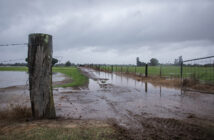Most farmers and landowners are enthusiastic about delivering public goods such as protecting and improving soil quality and managing land to increase biodiversity but remain cautious about signing up to schemes like the Sustainable Farming Incentive (SFI) and Landscape Recovery Schemes.
That is one of the findings of the Future of Farming survey, carried out jointly by the Country Land & Business Association (CLA) and Strutt & Parker – answered by 198 landowners and managers in England online during June and July 2022 – to get an insight into how people feel about the new schemes being rolled out and to identify how farms and estates are trying to build resilience within their businesses.
Concerns have been voiced about the slow uptake of schemes like the SFI, but the survey found farmers are much more open to taking steps to improve their environmental management and enhance nature than is sometimes portrayed.
For example, while the number of respondents who have carried out a carbon audit during the past three years was relatively low (23%), 56% are already making plans to reduce the carbon footprint of their farming business.
Although the survey showed that only 40% of the respondents confirmed they have or were planning to enter the SFI within the next three years – which seems low considering the government’s target of getting 70% of farmers signed up by 2028 – nearly two-thirds have or intend to sign up to the more established Countryside Stewardship Scheme.
When asked how likely or unlikely they would be to deliver a series of public goods with appropriate schemes and payments in place, 88% said they would be likely or very likely to take action to protect or improve soil quality and 82% said they would be likely or very likely to manage land to increase biodiversity – two key elements of the existing SFI.
Public goods
The public goods that farmers and landowners are less enthusiastic about delivering are supporting public access, managing land to reduce flood risk and restoring cultural heritage, although many of these are situation dependent.
Asked what steps they were taking to improve business resilience, the most popular answers were diversification into non-farming enterprises, benchmarking, accessing professional advice and changing crop rotations or livestock enterprises due to expected climate change.
CLA president Mark Tufnell said: “This survey has provided useful insights into farmer and land manager attitudes to the environment and signals that while many farmers and land managers are focused on food production, they are still keen to take steps to protect and enhance the environment given the right policies and payments.
Payment concerns
“The 40% intention to enter into SFI is encouraging. When asked why they had not entered SFI in 2022, the responses pointed to concerns about payment rates, but more frequently it was about waiting for more standards to become available or waiting to see if it would be a success. Only 2% said they were just not interested. These findings support the CLA’s call to Defra to fast-track the launch of new SFI standards and provide early clarity on payment rates so that farmers and land managers make informed decisions about the scheme.
“Similarly, it is encouraging to see the level of interest in Countryside Stewardship. Defra should capitalise on this and ensure that the scheme remains available until the replacement Local Nature Recovery Scheme is ready for full launch.”
Rhodri Thomas, head of rural for Strutt & Parker, said: “The results of this survey are particularly timely, given the highly polarised debate around land use. Policy makers are looking to find a balance between food security, carbon sequestration, development and biodiversity, and understanding how farmers feel about the challenges they face may help with policy development.
“The survey results point to farmers and landowners being open to embracing land management practices that will reverse biodiversity decline and tackle climate change, but uncertain about the current schemes on offer.
“One of the most interesting findings from the survey was that 40% of respondents said they would be comfortable changing from 5% up to 20% of their land use on a permanent basis to prioritise nature recovery or climate change mitigation if the financial incentives were good enough.
“Coupled to this, there is also evidence that the most environmentally engaged land managers are the most focused on increasing productivity and trying new environmental schemes. This gives me encouragement that, if we get the incentives and advice right, there is a chance of boosting food output, managing the environment better and boosting the rural economy. It is possible to do all three.”




